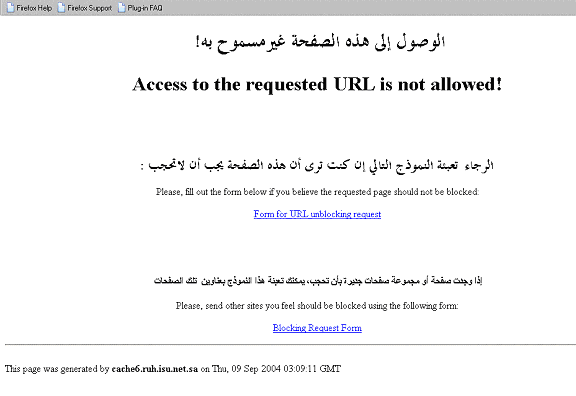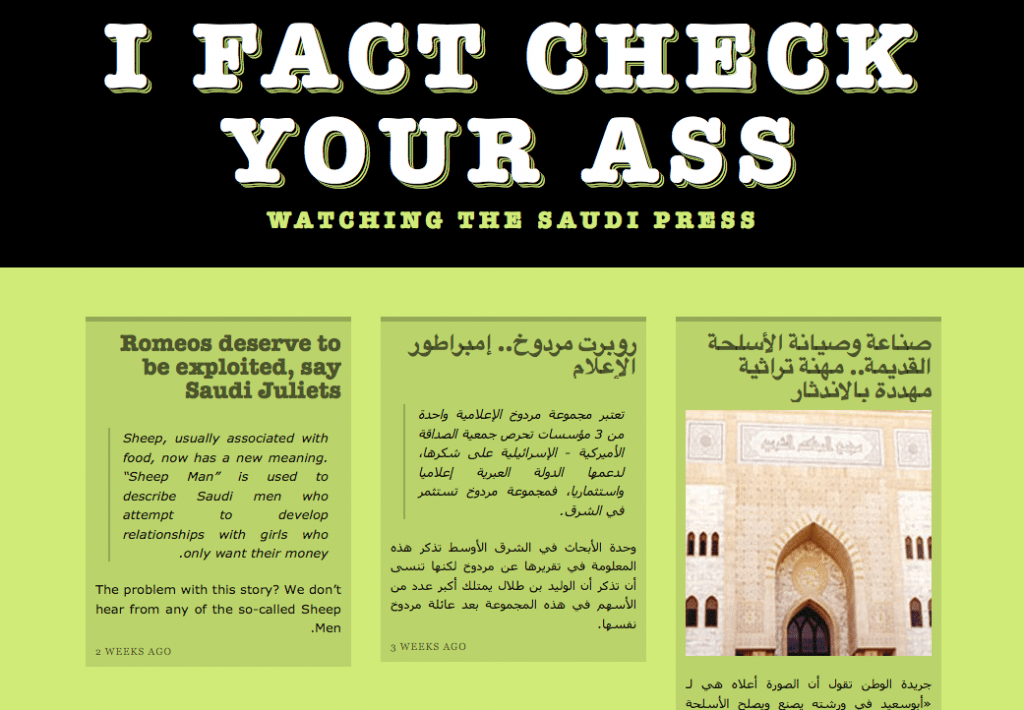You have the right to remain silent
Being a Saudi blogger

The fight against “immorality” is essential for the Saudi authorities, and is used to practice censorship in the country. There is no clear-cut definition, so potentially anything could be censored. And, censorship reaches another level when it makes you censor yourself.
For long, the authorities have done everything to protect people from this immorality. Ten years ago, most of the CD albums sold here looked different than in other places. Eminem’s songs made less sense: fewer lyrics and more silences. Mariah Carey was properly and warmly dressed up on her covers, women’s magazines had pages ripped out if there were sexy pictures. Movies were shorter as kissing scenes were missing. The same was true for TV series, which meant that the first kiss between Rachel and Ross in Friends went by unnoticed.
The introduction of the internet, as well as cable TV, considerably changed the situation. People now had unlimited options to check whatever was banned in our country. Therefore, all efforts of the authorities were undermined only a few years after this revolution, which was a technological one coupled with the underground market. Also TV channels started going around censorship: pornography was out in the blue. Even a Saudi opposition TV station, Islah TV could be watched.
Potentially anything could be considered harming the regime.
But the main achievements were obtained with the introduction of the internet in the 1990s. However, since the beginning, any website considered to be immoral or harming the regime has been blocked.
Users are encouraged to report the websites they think belong to this category. And, potentially anything could be considered harming the regime. As a result, websites have been shut down for only having made one criticism about an influential person. One of the latest well-known websites to be blocked was Amnesty International, which was shut down on July 25 for criticizing a new law about to be issued.
Internet gave more space for us to express ourselves.
But people usually know how to use proxies to bypass this constraint — indeed, it has become part of internet culture to use these websites. The website Hi5 for example, which was very popular before the introduction of facebook, got shut down a few years ago. This did not stop people from using it.

Internet gave more space for us to express ourselves. Blogs are widespread and more and more people decide to post all sorts of things related to everyday life, even social and political issues. One of the most famous bloggers, Ahmed Al Omran, founder of Saudi Jeans has been blogging since 2004. Like many, he started the blog just for himself and to practice his English. After discovering the curiosity readers had for his country, he decided to write about political and social issues.
“Some topics remain extremely sensitive to talk about in the country.”
Many use pseudonyms to avoid problems with the authorities. Ahmed is one of few people who choose to disclose their names. “I never had any desire to conceal my identity because I think that using your real name gives you more credibility,” he says. And more and more people are now doing the same. Ahmed, known for his sarcastic and assertive tone, agrees that “some topics remain extremely sensitive to talk about in the country”.
He launched a new website called I Fact Check Your Ass a few weeks ago, out of “frustration with the quality of content in local media”. He continues: “I thought that it would be fun to call what I consider lazy reporting and low standards of journalism out.” In a country where all media is scanned and followed by the authorities, this initiative is courageous and smart. On I Fact Check Your Ass, Ahmed quotes news articles in Arabic and English, which he comments in one or two paragraphs. It can be pointing out the hypocrisy of Al-Hayat when praising the Minister of Information; reminding the reader and the journalist during the Murdoch scandal of Walid Bin Talal’s share in News Corp; or making fun of poor reporting and bad scoops.
“I thought that it would be fun to call what I consider lazy reporting and low standards of journalism out.”
Ahmed writes in an easy-going way. His comments are sometimes in Saudi dialect, which gives the impression that he is talking and commenting live. This method guarantees the a reader laugh, and rightly points out the incompetence and overzealousness of some journalists. Ahmed: “So far I’ve been lucky. For the most part, I’ve faced no serious problems [with the authorities]”.
Ahmed’s innovative initiative, as well as this year’s uprisings across the region, has showed the blossoming of and potential impact of blogging. The Saudi authorities tried to lessen the effect by issuing a law on blogging in February this year. To be allowed to be active online, bloggers now need a license from the Minister of Information and Culture. Several conditions need to be met to get the authorization: you must be 20 years old or more, you must be Saudi and you must have at least a high school certificate. If caught blogging without the authorization, you have to pay a fine of 100,000 Saudi Riyals ($26,790), and have your blog banned. According to the authorities, this is in order to protect the society and bloggers from — again — immorality.






